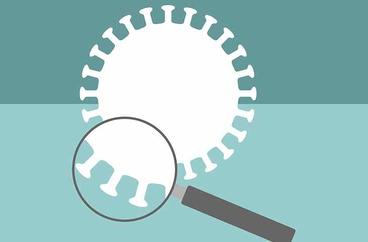01/19/2022

Author: Jakub Tolar, MD, PhD, Campus Public Health Officer
On what do the experts agree?
- The omicron variant is one of the most transmissible viruses known.
- Most people in the United States will get COVID-19. One in five already have.
- As more people are vaccinated and develop natural immunity, the pandemic will eventually subside. COVID-19 will remain, like influenza, an infectious agent that we will continue to deal with for a long time.
If people can be vaccinated and masked and still get COVID-19, what’s the point?
- The key goal is to stay out of the hospital. Just because our current resources aren’t perfect is no reason to not use them and try to stay well or have a milder case.
Is it too late to get vaccinated and/or boosted?
No! Get vaccinated and boosted. This is your best defense against a poor outcome. A Swiss study that tracked deaths by vaccine status showed mortality was 48× lower for fully vaccinated and boosted people.
How soon can I get boosted?
- If you had Moderna or Pfizer vaccine - as soon as 5 months after 2nd vaccination.
- If you had Johnson & Johnson vaccine - as soon as 2 months after vaccination.
- If you had a different type of vaccine, please check with Boynton Health for assistance.
- If you have a specific health condition and questions about the booster, please check with your health care provider.
- Acquired immunity (from having had COVID-19) was protective in many situations, but omicron changed the rules. Here is an in-depth explanation.
Why do the masking guidelines keep changing?
- We continue to learn more about how the virus spreads, and production has increased so that our front line workers now have an adequate supply. 3M alone produced over 2.5 billion N95 respirators in 2021.
I heard that cloth masks don’t work. What should I do?
- Any mask is somewhat effective at protecting others from you. To protect yourself, you should consider a high-quality mask (N95 or KN95).
- The University requires wearing a mask indoors in public spaces
- The U.S. Government is making 400 million non-surgical N95 masks available to the public for free. They will be distributed via pharmacies, community health centers, and other methods starting late next week and should be widely available by February.
- Follow good masking guidelines. Fit is critically important.
My friend/family member/roommate has COVID-19. What does the University recommend I do?
- If you are exposed to someone with COVID-19, follow these University guidelines for quarantine.
What should I do if I get COVID-19?
- If you develop symptoms of COVID-19, get tested:
- At a local clinic (NOT an emergency room) or other testing location,
- In the Twin Cities at Boynton Health,
- With an at-home antigen test kit (now covered by insurance or can be ordered free here),
- Or with a free mail-in kit for PCR testing from the state.
- If you test positive, follow University guidelines for isolation.
- Take care of yourself: stay home, rest, drink plenty of fluids, and treat fever.
- If you have questions or concerns, contact your healthcare provider or clinic.
- Follow the CDC at-home treatment guidelines and monitor for signs that you need emergency medical care.